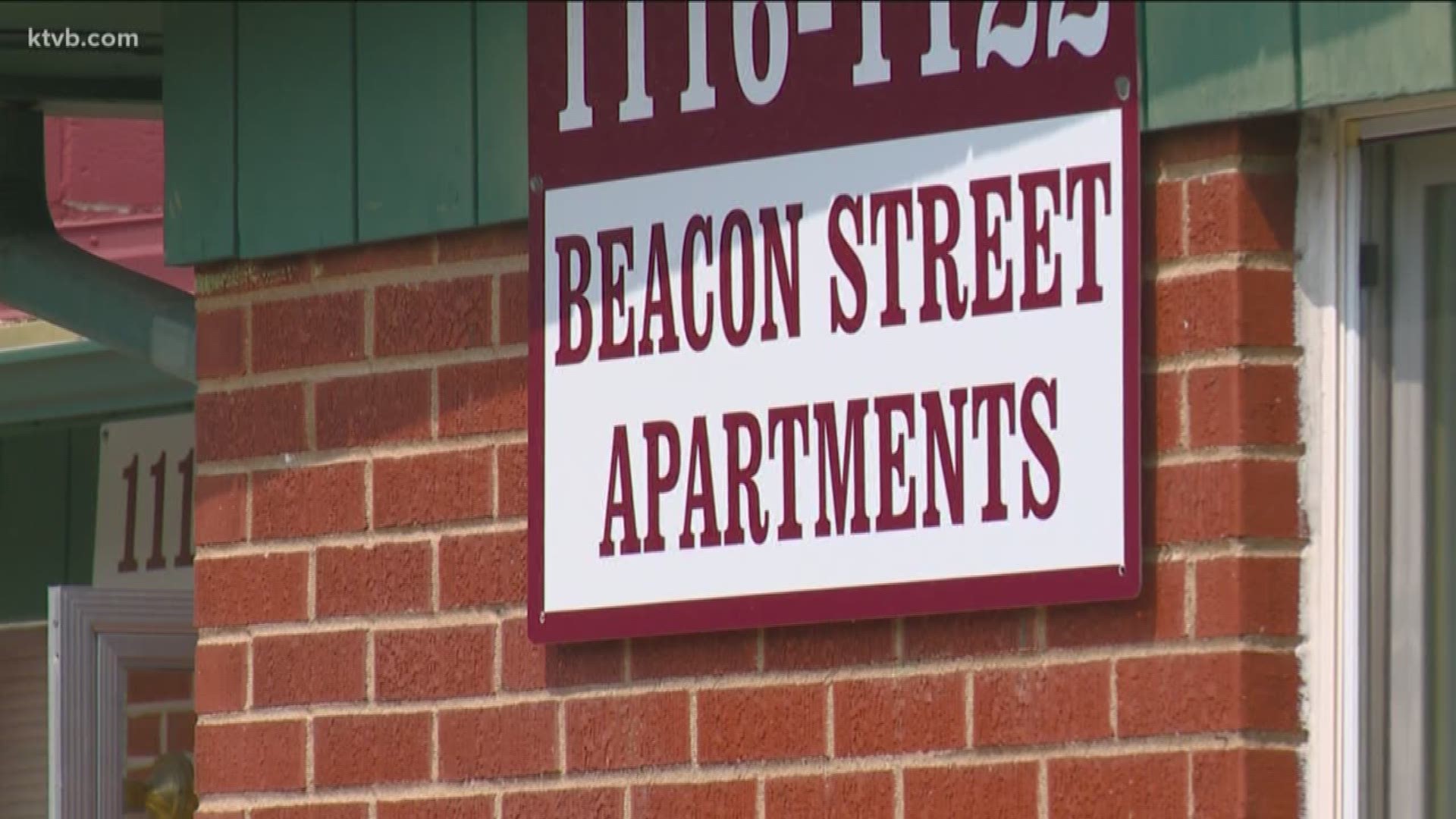BOISE — Boise State is on track to open its new baseball stadium by 2020 but how the university is going about the process is troubling to those who have skin in the game.
The Idaho State Board of Education gave the OK for BSU to exercise eminent domain where they plan to build the stadium.
It's a process used to acquire private property for public use if it's decided to be in the best interest of the public.
The private property in question is three properties a few blocks south of the football stadium near Beacon Street.
An agreement has been reached with one of the landowners where an eight-unit apartment complex sits but so far has a deal has yet to be made with two other landowners.
One of which is another apartment complex.
"Here in Boise, we are having a crisis of affordable housing. The fact that they want to take away a dozen homes in order to build a baseball stadium is seriously concerning because they want to exacerbate one of the biggest problems we are facing as a community," says Phil Haunschild of the Idaho Freedom Foundation.
Haunschild doesn't believe building a baseball stadium is a just reason to use eminent domain.
"The use of eminent domain for a stadium I think is an overreach. Eminent domain was meant to serve as a tool of last resort for those critical public infrastructure needs, for the roads, for the transmissions lines, for electricity, for canals for irrigation," says Haunschild.
Boise State officials disagree.
"It is a vital part of the university and the university's mission in creating experiences for the students and it’s a big part of how the community experiences the university as well," says Greg Hahn, a spokesman for BSU.
The other property is a parking lot used for the Biblical Studies Center, a place where BSU students gather for activities and worship.
Kevin Skidmore, a representative for the center, is hoping for a win-win situation but says an agreement hasn't been reached for several reasons.
"It's the value of the land itself, more importantly the spaces, and then the length of time for the spaces and how that's going to meet our needs as well as service them in a journey toward a baseball team," says Skidmore.
"There's certainly no one at Boise State who wants to use eminent domain and I think we are pretty sure that we won’t have to ultimately and that's the goal," says Hahn.
Hahn also says that in the 1970s, the church official in charge of the parking lot at the time acknowledged that he had a conditional use permit for the lot as it was located within the university's stated expansion zone.

